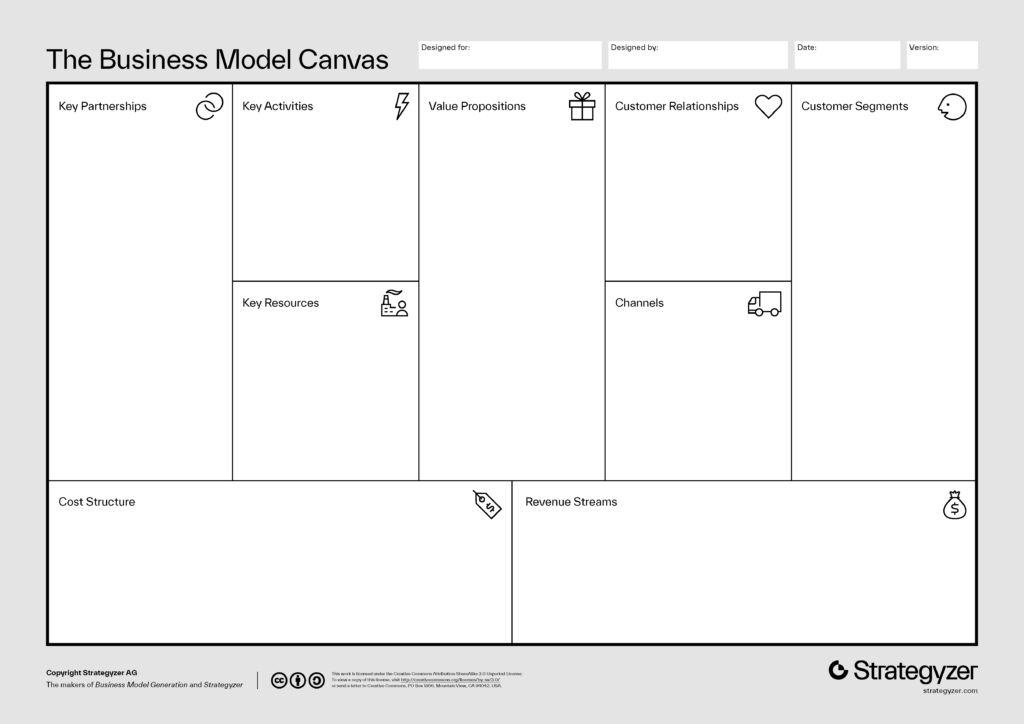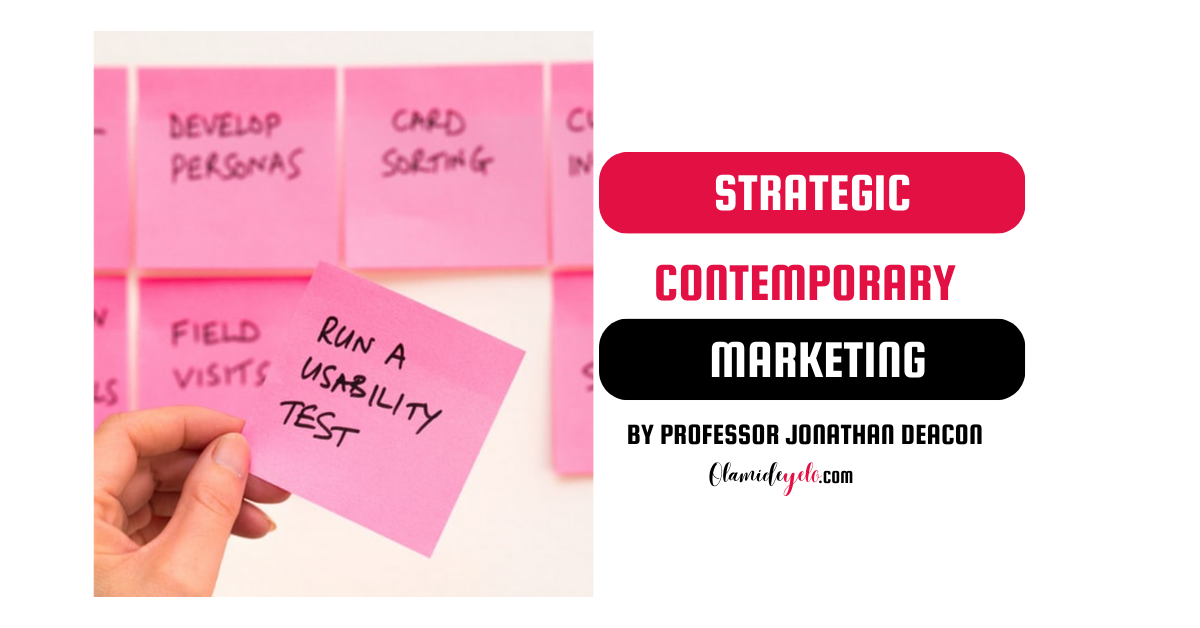Welcome to the first part of my MSC Strategic and Digital Marketing Experience Series, where I aim to share my insights from my post-graduate program at the University of South Wales. I will delve into Professor Jonathan Deacon’s Strategic Contemporary Marketing module in this post and highlight the key points that, in my opinion, can be useful to a wide range of readers. The subsequent parts of this series can be found HERE
READ: Welcome To 4.0 | Relaunching My Personal Website olamideyelo.com!
The Strategic Contemporary Marketing module aimed to explore modern marketing models, evaluate different approaches to strategic development and equip students with the skills required for strategic review and business planning. It aimed to meet the standards set by professional bodies for contemporary marketing strategy development.
A Deep Dive into the Business Model Canvas (BMC)
One of the highlights of this module was gaining a deeper understanding of the Business Model Canvas (BMC) and its three crucial categories: feasibility, desirability, and viability. This framework was the foundation for exploring vital marketing concepts and building successful businesses, products, or services.

We focused mainly on the feasibility and desirability aspects, covering value proposition, customer segmentation, channels, and customer relationships. These concepts are the cornerstone of any successful marketing strategy. The BMC simplifies how a business operates, offering a one-page visual summary of nine components. In their book “Business Model Generation,” Alex Osterwalder and Yves Pigneur introduced it as an alternative to lengthy business plans. The advantages of the BMC include its clarity, informality, customer-centricity, risk reduction, and proven innovation.
The module also emphasized the importance of value propositions and the value proposition canvas. As marketers, our goal is to create a compelling value proposition by understanding customer profiles, addressing their pains and gains, and tailoring products and services to meet their needs.
Professor Jonathan Deacon’s teaching style was unique. He used storytelling to simplify complex concepts, making them understandable and relatable. This approach enhances knowledge retention, especially for challenging or less motivated learners, as highlighted by Janelle Cox,
Marketing-Led Strategic Change And The Power of Storytelling
The changing marketing landscape requires creative leadership skills. Generating and executing ideas effectively is essential in today’s marketing world. We were encouraged to ask critical questions like “What business are we in?” and “What business should the TRIBE think we should be in?” These questions are central to shaping effective marketing strategies in the digital age
The shift from business models to storytelling was enlightening. We discovered how personas help select the right information for messaging, emphasizing the transition from traditional to persuasive and relatable storytelling techniques.
Skills Acquired
From this course, I gained skills in digital transformation, the business model canvas framework, design thinking, and creative leadership. The module equipped me with the knowledge and insights needed to navigate the ever-changing marketing landscape.
Undoubtedly, this module has been an invaluable learning experience, and the lessons learned will continue to guide me throughout my marketing career.
